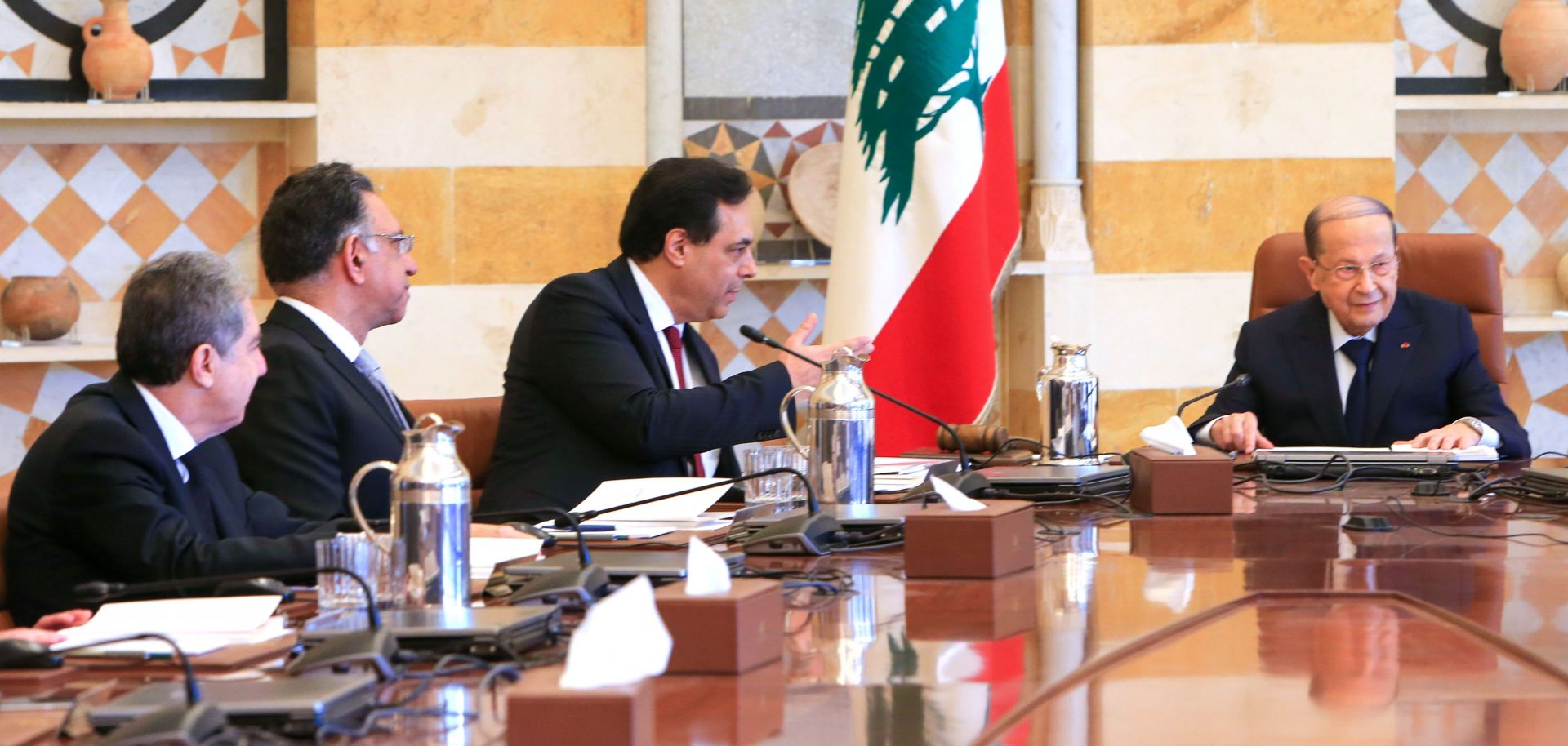ASSESSMENTS
Lebanon's Problems Will Exceed Its New Cabinet's Grasp



Jan 23, 2020 | 21:31 GMT

Lebanese President Michel Aoun (R) heads the first meeting of Prime Minister Hassan Diab's (C) newly constituted government in Beirut on Jan. 22, 2020. Lebanon's woes extend beyond changing the people at the top.
(AFP via Getty Images)
Highlights
- A new Cabinet under Hassan Diab will not offer enough of a change to end the protest movement that is dominating Lebanon's political life, impacting its unsteady economy and hurting its security stability.
- Lebanon could become more isolated, as well as the target of U.S. sanctions, given that the Hezbollah-aligned March 8 alliance will play a large role in Diab's government.
- The government will not solve Lebanon's economic woes, but it will prioritize the import of necessary goods in a bid to discourage popular unrest.
Subscribe Now
SubscribeAlready have an account?
